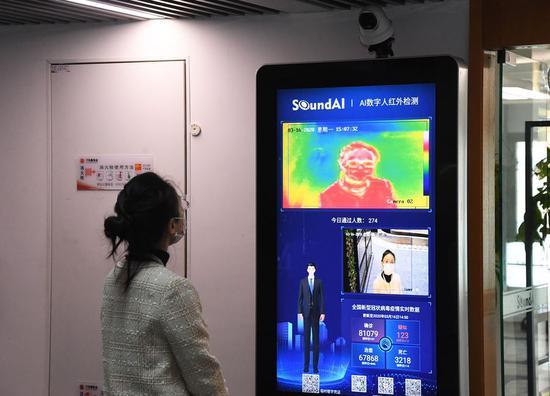
China highly values artificial intelligence (AI) development and injects big in developing a new generation of AI technologies, an official from the Ministry of Science and Technology (MOST) said at Tuesday's press conference.
China has initiated two batches of key projects on new generation AI technologies, with the investment amounting to 1 billion yuan (about 140.7 million U.S. dollars), said Qin Yong, director-general of the Department of High and New Technology of the MOST.
These key projects target at those AI-techs, which are of the world's cutting-edge fields and in line with the national strategic needs, Qin said.
Support will orientate five scientific research themes: data intelligence, swarm intelligence, cross-media intelligence, man-machine hybrid intelligence and intelligent system.
To facilitate the development of the new generation AI, the MOST has already made systematic arrangements from studies on basis theories, key technologies, supporting systems and industrial applications, Qin said.
AI is an inevitable process of the further development of new-generation information technology (IT), also a global concerned direction of deep integration of IT and economic and social development.

A staff member (R) demonstrates 5G-based remote control of a robot during the 2019 World Artificial Intelligence Conference (WAIC) in east China's Shanghai, Aug. 29, 2019. (Xinhua/Fang Zhe)
In 2017, the State Council issued a plan for new generation AI development. The plan said the AI industry should become a major new growth engine.
Then, China has seen encouraging growth in the new generation AI sector, thanks to nationwide joint efforts to facilitate its growth.
Besides big investments into key projects, the MOST has introduced a series of measures to boost the AI development.
According to Qin, the MOST has arranged the construction of new generation AI open innovation platforms to cultivate the environment of tech-development and application.
To date, China has set up 15 such platforms nationwide, respectively focusing on basic software and hardware, intelligent healthcare, smart supply chain and smart city governance, among others.
Besides, China has set up a batch of new-generation AI innovative development pilot zones, which target helping pilot projects and boosting industrial upgrading through AI-tech. To date, there are 11 such pilot zones across China.

Furthermore, China is active in boosting AI ethical governance. The country highlights the development of responsible AI-techs, through moves such as setting up a national specialized committee and issuing principles on new generation AI ethical governance.
"China gained rapid development in the development and application of AI-techs due to those comprehensive measures," Qin said.
He noted that the AI-assisted diagnostic system, face recognition, temperature detection and a series of AI products and technologies are playing significant roles, especially in the recent anti-epidemic fight.
"In the future, AI will surely be a part of daily life, which means that there is a lot of work ahead. We are also paying efforts in various tech-paths of the AI," said Wang Zhigang, Minister of the MOST.
China's science and technology authorities and scientific insiders are also keeping an eye on the relationship between the development of AI and the fourth industrial revolution, Wang said.
"In the next step, the MOST will strengthen support to the development of the AI technologies by further enhancing basic research and key technologies, as well as strengthen the ethical governance to ensure its healthy development," Qin said.